Word of the Day Jubilant – Meaning, Usage & IELTS Examples
3 min read
Updated On
-
Copy link
This blog helps you learn how to use the word of the day: “Jubilant,” meaning feeling joyful or triumphant, effectively in IELTS Speaking & Writing, by including meaning, examples, word forms, and sample answers to boost your IELTS vocabulary.
Table of Contents

Limited-Time Offer : Access a FREE 10-Day IELTS Study Plan!
Improving your vocabulary is a vital part of preparing for the IELTS exam. Today’s word, “Jubilant,” is particularly useful in IELTS Speaking and Writing when expressing joy, triumph, or emotional celebration, especially in social, academic, or personal success contexts.
Meaning of “Jubilant”
(adjective): Feeling or expressing great joy, satisfaction, or triumph, typically after a success or victory.
Origin and History
The word “Jubilant” dates back to the mid-17th century, derived from the Latin verb “iubilare”, meaning “to shout for joy.” It evolved into “iubilantem” (present participle of iubilare), and eventually formed the modern English word “jubilant,” signifying exultation and elation.
Usage in IELTS Context
Mastering the word “jubilant” can help you express emotions vividly in descriptive answers during the IELTS Speaking test or in narrative contexts in IELTS Writing Task 2.
Want to master more high-band IELTS vocabulary for the IELTS exam? Book a Free Demo Class today!
How to Use “Jubilant” in IELTS Speaking & Writing?
Understanding the different forms of this word can help you use it naturally across a range of IELTS Speaking and IELTS Writing topics.
1. Adjective Form – Jubilant
- The fans were jubilant over India winning the world cup
- Her family was in a jubilant mood as they started their holiday trip
- When the new baby was born, it was a jubilant moment for the parents
- The students were jubilant when their team won in the competition.
- she was in a jubilant mood as she received an award for her performance.
2. Noun Form – Jubilation
- The scenes of jubilation were witnessed when their favorite leader was elected.
- When the results were announced, the students erupted in jubilation.
- People in the stadium roared in jubilation when the other team lost over one ball.
- When the girls won over boys in the tennis tournament at school, everyone jubilated.
3. Adverb Form – Jubilantly
- When prizes were announced, the team members jubilantly hugged each other.
- She cried jubilantly when she found that she was the rank holder.
- When results were announced, students roared jubilantly.
- They wept jubilantly when they found out about their lost grandson.
- After winning the elections at the college, Rose jubilantly appreciated the efforts of her supporters.
IELTS Tip
Using emotional IELTS Vocabulary like “jubilant” appropriately can enhance your Lexical Resource score. Try to use it naturally in answers related to success, celebration, or memorable events.
Grab the newly launched Vocabulary for IELTS to level up your preparation.
Synonyms for Jubilant
- Overjoyed
- Elated
- Exultant
- Delighted
- Ecstatic
How to Use “Jubilant” in IELTS Speaking?
The word “jubilant” describes a feeling of great joy or success. It’s a powerful adjective that can add emotional depth to your responses in the IELTS Speaking test, especially when talking about happy moments or achievements.
Where You Can Use “Jubilant”:
- IELTS Speaking Part 1 (Introduction): When talking about your feelings or personal experiences.
- IELTS Speaking Part 2 (Long Turn): Describe a time when you felt very happy or successful.
- IELTS Speaking Part 3 (Discussion): Discuss emotions related to achievements or celebrations.
Example:
“Last year, when I received a full scholarship for my postgraduate program, I felt absolutely jubilant. It was a proud moment, and my family celebrated with great jubilation.”
Practice Question for IELTS Speaking
Q: Describe a time when you felt very happy or successful.
A: Last year, when I was awarded a full scholarship for my postgraduate program, I felt absolutely jubilant. It was a proud and emotional moment, and my family celebrated the news with great jubilation.
Overall, the word “Jubilant” is an excellent addition to your IELTS vocabulary, especially when expressing joy, success, or celebration in both Writing and Speaking tasks. Whether describing personal achievements or public events, using words like jubilant, jubilation, and jubilantly enhances emotional tone and lexical range. Practice using them naturally to boost your Lexical Resource score and leave a positive impression on the examiner. If you're aiming for top IELTS Band Score, follow the IELTS Exam Preparation Tips for Band Score of 8+ to further enhance your vocabulary and overall test performance.
Also Check:
Explore IELTS Resources

Start Preparing for IELTS: Get Your 10-Day Study Plan Today!
Recent Articles
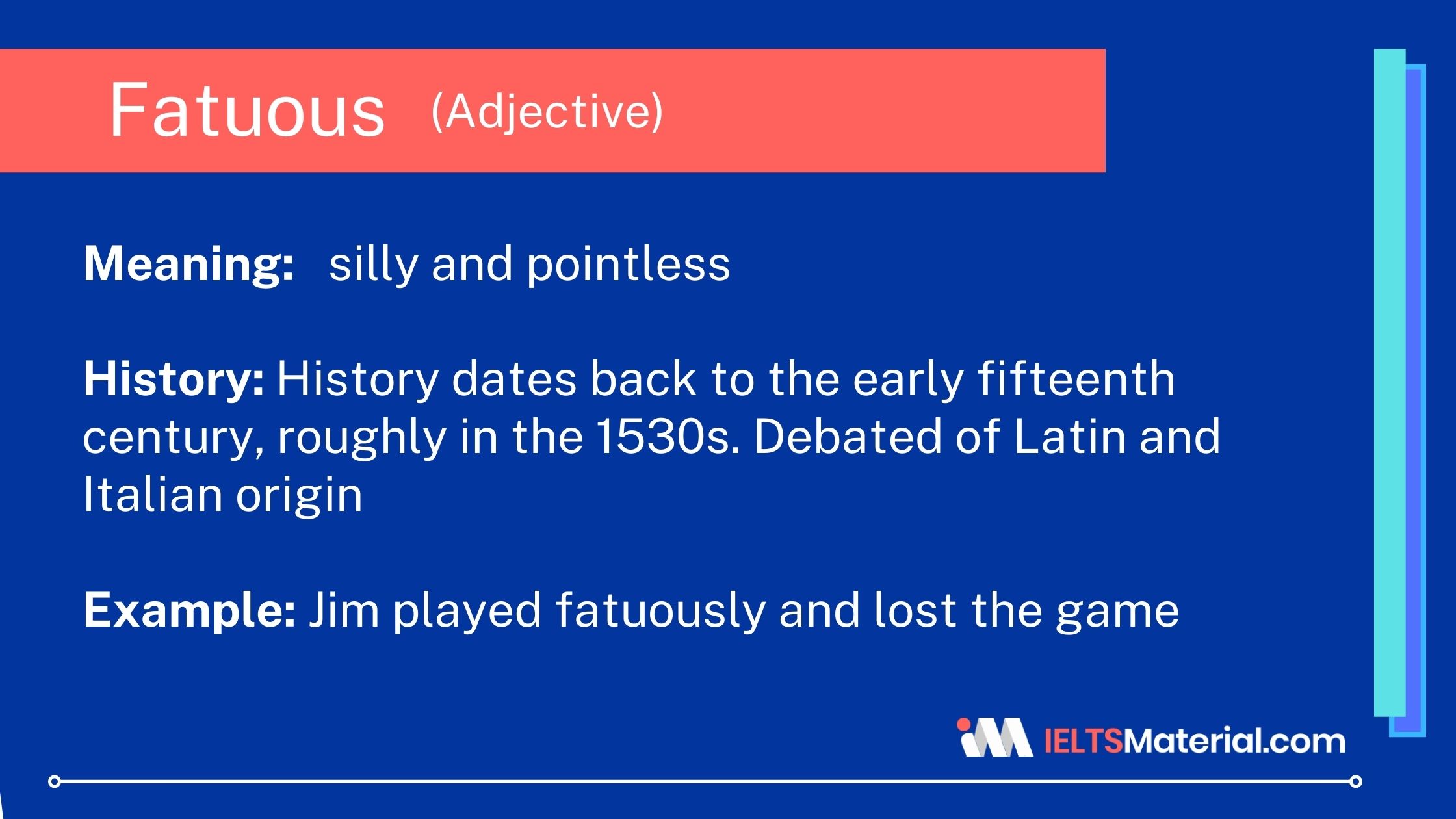
Kasturika Samanta
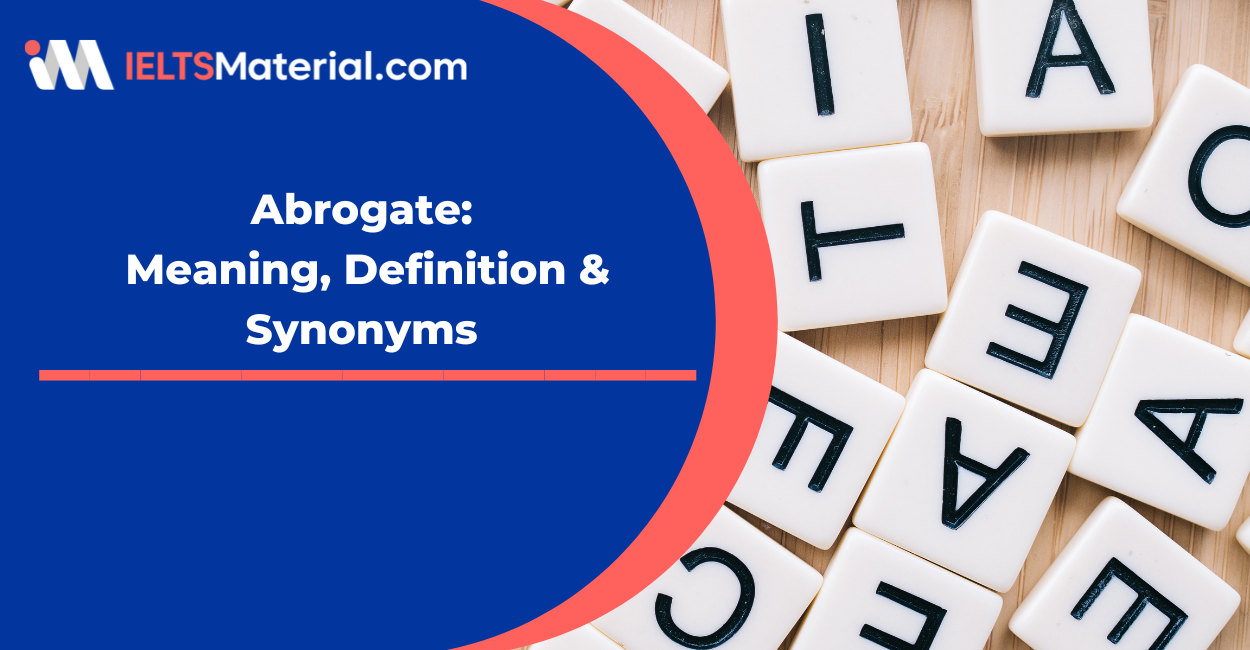
Kasturika Samanta
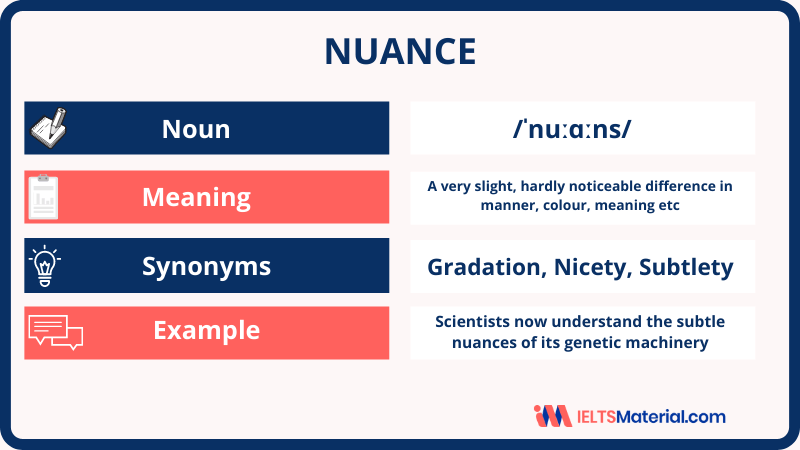
Kasturika Samanta
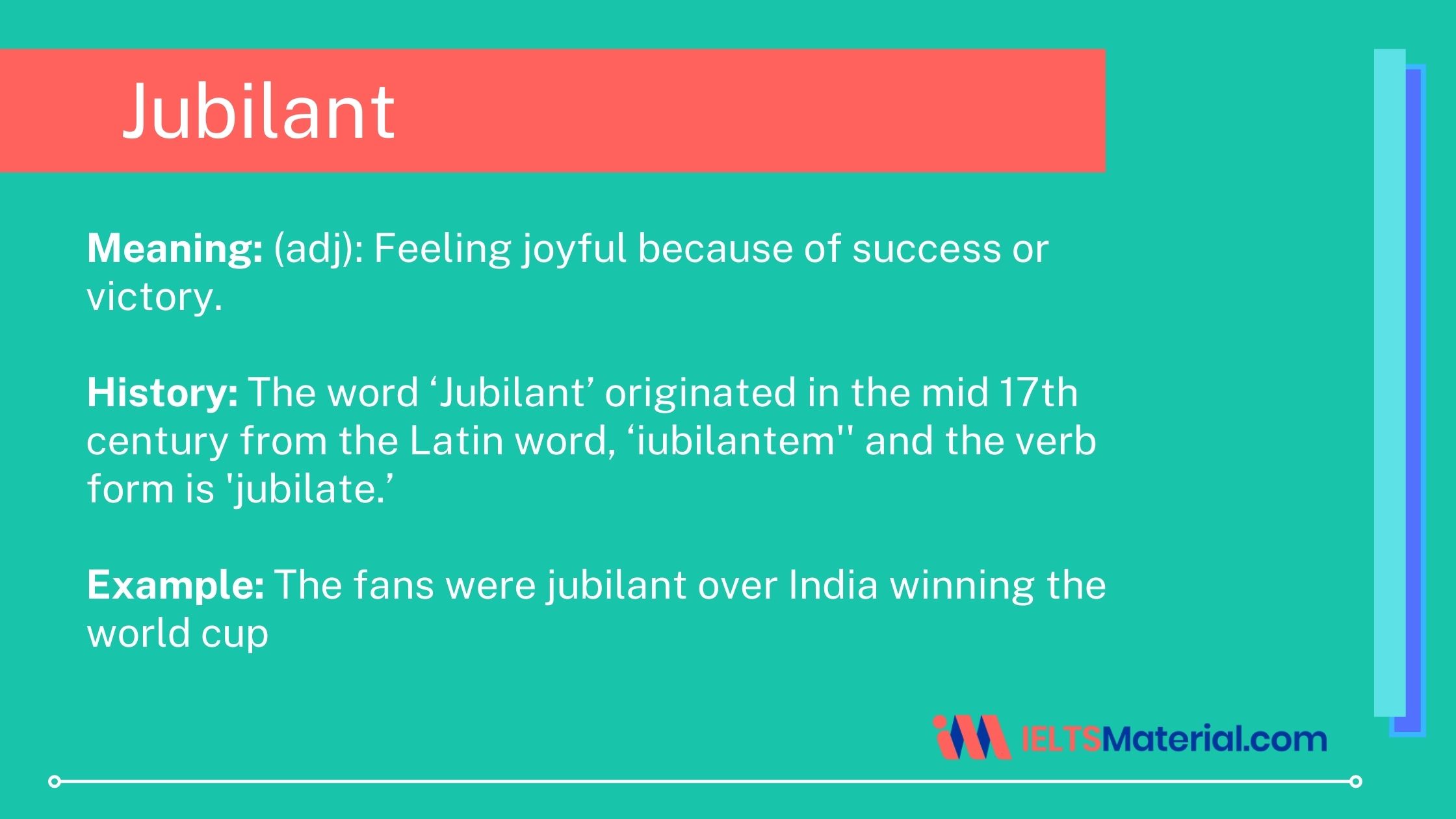

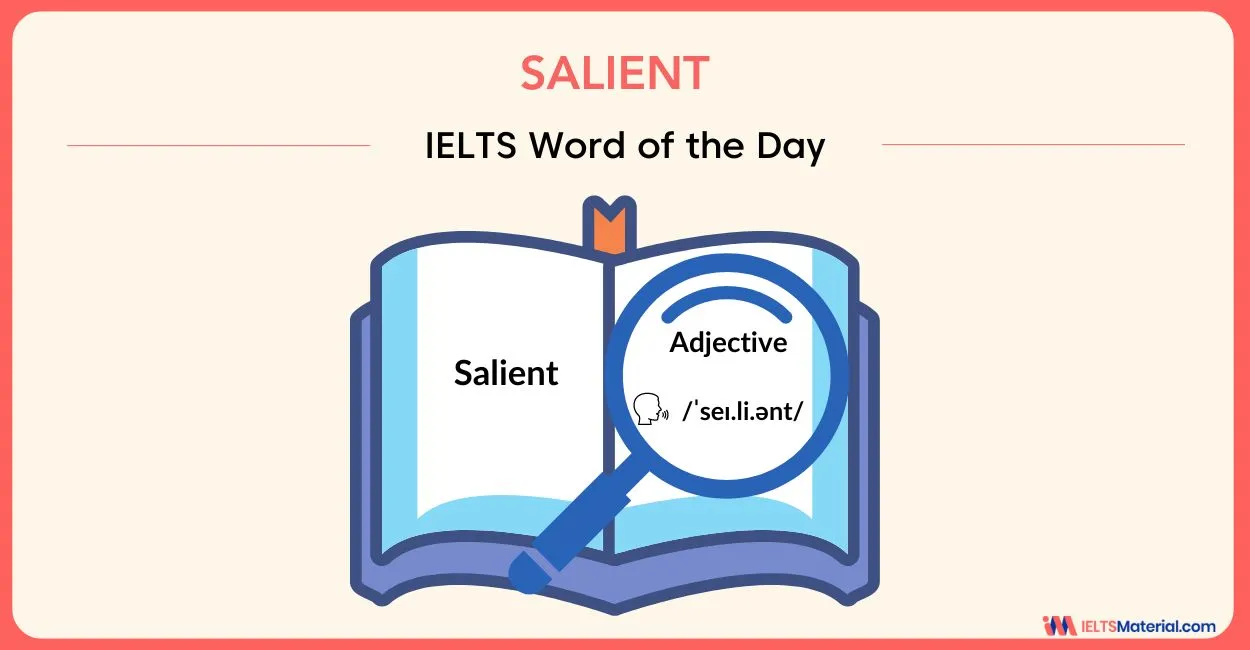


Post your Comments